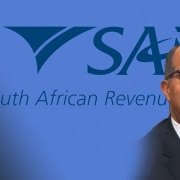|
Getting your Trinity Audio player ready...
|
By Gareth Newham
First published on the Institute for Security Studies
Now that South Africa has undergone a profound political shift with the appointment of President Cyril Ramaphosa, the hard work of rebuilding various state institutions must begin. This is certainly true for law enforcement and intelligence agencies that were severely weakened by maladministration and corruption under Jacob Zuma’s presidency.
No sooner had a new police minister been appointed in the form of Bheki Cele than the specialised detective unit – the Hawks – undertook an ill-considered raid on journalist Jacques Pauw’s home. The raid was due to a criminal charge opened by the State Security Agency (SSA) following the release of Pauw’s best-selling book The President’s Keepers, containing details from classified documents.
In the book, Pauw explains how former Zuma loyalists abused their positions in key law enforcement institutions to enable ‘state capture’ and prevent those involved from being held accountable. The book provides astonishing details of how senior officials in institutions like the South African Police Service (SAPS), Directorate for Priority Crime Investigation (the Hawks), National Prosecuting Authority (NPA), SSA and South African Revenue Service (Sars) were involved in unlawful activities including treason, organised crime and corruption.
But why did the Hawks’ ‘crimes against the state’ unit prioritise the raid on Pauw? If true, the allegations in Pauw’s book identify several long-standing threats to South Africa’s national security. The Hawks have been sitting with criminal charges against Sars head Tom Moyane since December 2016 and SSA head Arthur Fraser since May 2017. To date there is no evidence of any action being taken against these individuals.
Criminal charges were opened against the Gupta family much earlier – May 2016 – based on hard evidence that they were corruptly influencing Zuma in the awarding of cabinet posts to benefit their business interests. The Hawks’ Gupta raids took place almost two years later while their raid on Pauw came less than four months after his book was published.
On 28 February 2018, the Hawks’ acting head Yolisa Matakata told Parliament’s police portfolio committee that some of their investigations into the Guptas were completed and sent to the NPA in November 2017. She said the delays in acting were the fault of the NPA who hadn’t given the Hawks the go-ahead to arrest the Guptas until after they left the country. The Hawks can however make arrests on the evidence before them, without requiring the NPA’s permission.
Integrity and experience not a big part of police recruitment
Cele’s main challenge is that many senior SAPS and Hawks appointments made during the Zuma presidency were rarely due to their integrity, skills and experience. This pattern started two months after Zuma was sworn in as president in April 2009 with the appointment of Richard Mdluli to the powerful post of SAPS Crime Intelligence head. Mdluli allegedly then spied on Zuma’s political adversaries and was seen as untouchable due to his loyalty to Zuma.
Before the start of his six-year suspension on full pay – while facing charges ranging from kidnapping to corruption – Mdluli reportedly made around 250 dodgy appointments in Crime Intelligence, including 23 friends and family members with no policing experience, and at least 15 people with criminal records.
It wasn’t just Mdluli though. Some of the six SAPS national commissioners appointed during Zuma’s presidency also hired people they favoured into top-level posts without subjecting them to the required assessments or vetting processes. In 2016/17 under former acting police national commissioner Khomotso Phahlane, who is currently facing criminal charges for corruption, 55 such appointments were made.
The same situation occurred in the Hawks. Despite a high court judgment that then acting Hawks head Berning Ntlemeza was ‘dishonest’ and ‘dishonourable’, the police minister at the time Nathi Nhleko appointed him permanently. Ntlemeza then appointed various people into key positions in the Hawks despite evidence that some may not be suitable.
Top police leadership must be overhauled
Cele’s first priority is therefore clear. He urgently needs to overhaul the top leadership of both the SAPS and the Hawks. This is in line with the recommendations of government’s National Development Plan which recognises that the fundamental challenge facing policing is the ‘serial crises of top management’.
He could rely on the Civilian Secretariat for Police to commission an independent audit of all 35 lieutenant-generals, 216 major generals and 664 brigadiers. The audit should cover whether they have the skills and expertise for their posts, and their performance. The integrity of each of these officers must be assessed through lifestyle audits and forensic investigations of any allegations of wrongdoing.
In cases of under-performance, officers should be redeployed to less strategic posts. If evidence of misconduct or criminality emerges, appropriate procedures for their suspension, prosecution and dismissal should follow. Vacant posts should then be filled following competitive, transparent and merit-based processes where all candidates are thoroughly assessed and vetted before appointment. Police commanders with integrity and ability should have their authority enhanced.
Unless there is a complete overhaul of the SAPS and Hawks leadership, the performance of both organisations is unlikely to improve. Since 2012 the Hawks’ arrest and conviction rates have plummeted and various SAPS performance indicators have deteriorated. Consequently murder, armed robbery, organised crime and corruption have substantially increased.
Moreover, those appointed as part of the state capture project under Zuma will continue to frustrate reform initiatives and undermine the current administration.
Cele must know that the success of any law enforcement agency is based on the calibre of its operational leadership. His future legacy will depend on getting this right.
• Gareth Newham is the head of justice and violence prevention at the ISS in Pretoria








